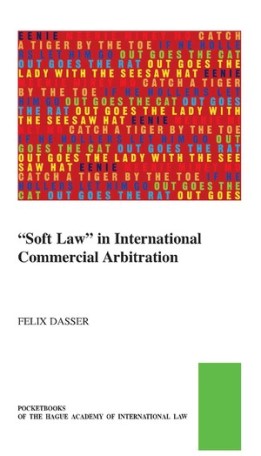
“Soft law” is a current buzzword and considered a panacea for all kinds of issues that arise in international commercial arbitration. Very little research has, however, been done on the dogmatic underpinnings of the concept and its actual legal relevance. This course follows the development of the so-called “soft law” from its origins in public international law to commercial arbitration, where it is used today as a label for various instruments and phenomena, covering both procedural aspects and the applicable substantive law: model laws, arbitration rules, guidelines, the UNIDROIT Principles, the lex mercatoria, and others.
It presents three particularly well-known sets of guidelines by the International Bar Association and discusses the pros and cons of “soft law” instruments and their potential normativity. The analysis suggests that “soft law” instruments are typically less well recognised in practice than is generally assumed. The author explains what such instruments can achieve and what minimum requirements they have to fulfil to at least aspire to some legitimacy, and argues ultimately that “soft law” instruments can be very useful tools, but they do not carry any normativity.
This book is Volume 44 of the series The Pocket Books of The Hague Academy of International Law / Les livres de poche de l'Académie de droit international de La Haye